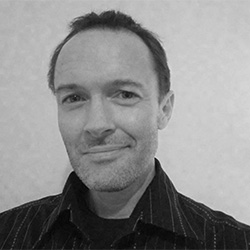Samuel Hedemann

Title: Visiting Assistant Professor
Department: Physics
Campus: Long Island
Areas of Expertise: Quantum Information, Entanglement, Quantum Computation
Education Credentials: Ph.D.
Joined New York Tech: 2019
Prior to joining New York Institute of Technology, Samuel R. Hedemann completed the Postdoctoral Fellowship in Quantum Information Science at The Johns Hopkins University Applied Physics Laboratory (JHUAPL), and taught as an adjunct professor of physics at Hunter College (CUNY) before that. He received his Ph.D. in Physics from Stevens Institute of Technology in 2014 as an Innovation and Entrepreneurship Doctoral Fellow, where he worked as part of the Quantum Information and Quantum Optics group headed by Ting Yu. Before that, he earned his Bachelor of Science in Physics from University of Maryland Baltimore County (UMBC) in 2008.
Hedemann's research focuses on three main areas: quantum entanglement, quantum computation, and selected topics in theoretical physics and mathematics. One area of his research that has shown particular success started with a paper he wrote as a grad student in 2013 implementing a numerical investigation of a new class of states he proposed called true-generalized X (TGX) states, which he hypothesized to have the special property of being related to the set of all quantum states by an entanglement-preserving unitary (EPU) transformation. Since then, his hypothesis has been proven for two qubits in two different ways; both implicitly and explicitly. This discovery is significant because it means that all quantum states of two qubits can be reduced to a simple compact set with the same entanglement properties as the set of all states, yet easier to produce and easier to work with mathematically. However, his hypothesis extends to all N-body quantum systems, not just two qubits, and his current work aims at proving it for the general N-body case.
Beyond theoretical quantum information, Hedemann's work also focuses on real-world applications of these ideas, such as with the design of quantum-computational hardware, quantum-communications devices, and novel methods of post-quantum computation. Understanding the fundamental physics behind quantum technology is crucial to unleashing its potential to enrich our lives and the health of our planet. Quantum computation offers the possibility to model difficult physics problems in realistic time frames, and this might allow for things such as writing programs capable of discovering cancer-killing drugs or finding practical solutions to alleviating the world's climate crisis.
Recent Projects and Research
- Construction of measures of all possible nonlocal correlation for discrete N-body quantum systems, computable for all states both pure and mixed. S. R. Hedemann, "Correlance and Discordance: Computable Measures of Nonlocal Correlation" (2020), arXiv:2001.03453.
- Design of an alternative quantum-computational architecture capable of scalability and operation at room temperature.
Recent Publications
- S. R. Hedemann and B. D. Clader, "Optomechanical Entanglement of Remote Microwave Cavities" J. Opt. Soc. Am. B 35 2509 (2018)
- S. R. Hedemann, "X States of the Same Spectrum and Entanglement as All Two-Qubit States" Quant. Inf. Process. 17 293 (2018)
- S. R. Hedemann, "Candidates for Universal Measures of Multipartite Entanglement" Quant. Inf. Comp. 18 443 (2018)
- P. E. M. F. Mendonca, M. A. Marchiolli, S. R. Hedemann, "Maximally Entangled Mixed States for Qubit-Qutrit Systems" Phys. Rev. A 95 022324 (2017)
- S. R. Hedemann, "Ent: A Multipartite Entanglement Measure, and Parameterization of Entangled States" Quant. Inf. Comp. 18 389 (2018)
- S. R. Hedemann, "Hyperspherical Bloch Vectors with Applications to Entanglement and Quantum State Tomography" ProQuest UMI Diss. Pub. 3636036 (2014)
- T. Ma, Y. Chen, S. R. Hedemann, T. Yu, "Crossover Between Non-Markovian and Markovian Dynamics Induced by a Hierarchical Environment" Phys. Rev. A 90, 042108 (2014)
- X. Zhao, S. R. Hedemann, T. Yu, "Protecting Entangled States via Environment-Assisted Error Correction" Coherence and Quantum Optics X (2013)
- X. Zhao, S. R. Hedemann, T. Yu, "Restoration of a Quantum State in a Dephasing Channel via Environment-Assisted Error Correction" Phys. Rev. A 88 022321 (2013)
Honors and Awards
- Inventor's Award from The Johns Hopkins University Applied Physics Laboratory, 2016
- Quantum Information Science Postdoctoral Fellowship, at The Johns Hopkins University Applied Physics Laboratory, 2015-2016
- Innovation and Entrepreneurship Doctoral Fellowship at the Stevens Institute of Technology, 2009-2014" "- PHYS 170: General Physics I
Courses Taught at New York Tech
- PHYS 170L: General Physics I Laboratory
- PHYS 175: General Physics for Pre-Med I
- PHYS 225: Introduction to Modern Physics
- PHYS 115: Humanity and the Physical Universe
- PHYS 180: General Physics II
- PHYS 185: General Physics for Pre-Med II